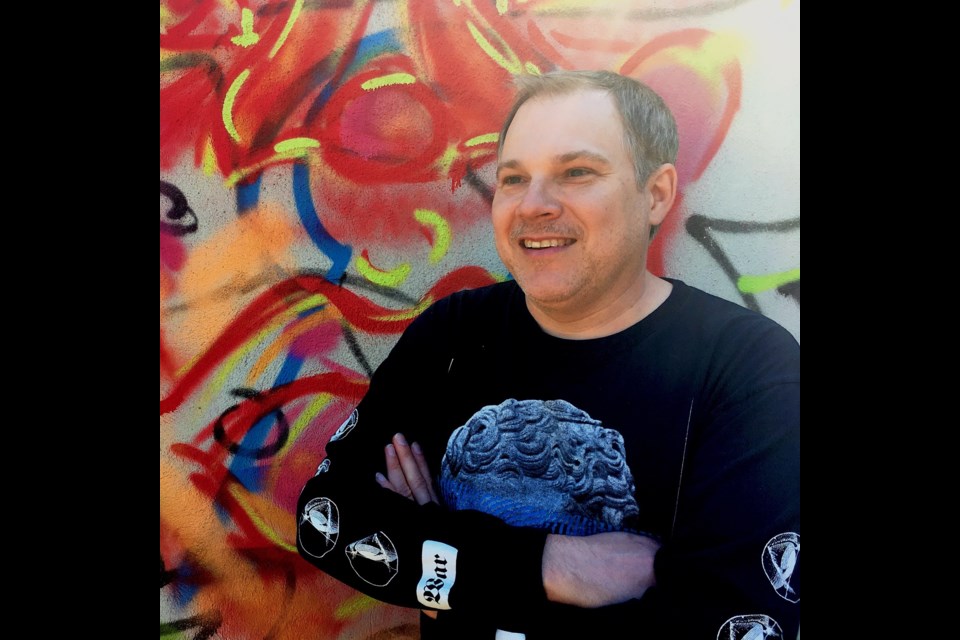In the 1990s, many youth in BC flocked to all-ages punk rock shows. Many found a community, a sense of belonging, and a chosen family, for those who felt out of place elsewhere in society.
When author and journalist Jason Schreurs heard someone say “punk rock saved my life” something in him clicked.
“Without punk I probably would have been completely lost,” said Schreurs. “I didn’t understand why I was such a weirdo and didn’t fit into any scene.”
At the Patricia Theatre on May 11 (7 pm), Schreurs will share stories from his recently released memoir plus (a genre of memoir that includes more than one person).
His book, Scream Therapy: A Punk Journey Through Mental Health, is journalistic storytelling that documents how Schreurs and other punks “came to a life-changing realization that punk rock helped them at their lowest points and never left their sides.”
At the upcoming reading, Schreurs said he wants the audience to get a sense of what the book is about.
“I will be reading from different chapters,” he added. “Musicians will be playing a couple songs each, but that’s not the focus; the focus is the book and readings.”
After experiencing a mental health crisis in 2018, and navigating the medical system, Schreurs was finally able to write again. In 2020, he began his University of King’s College Master of Fine Arts in Creative Nonfiction. He said he always knew he would write a book but was never sure what it would be about.
With good mentors, his own lived experience and by gaining the trust of those within the punk community to share their stories, Schreurs wrote Scream Therapy.
“Hearing about someone’s lived experience is much more valuable than just reading through the Diagnostic and Statistical Manual of Mental Disorders,” said Schreurs. “Hearing real life struggles can be powerful; the book is very much about people, not [just] my story, but other people’s. It’s not stuffy, it’s not boring.”
According to a press release, “Scream Therapy debunks misconceptions about punk and mental health, and shows how marginalized folks, such as those living with addiction, poverty, discrimination and abuse histories find empowerment and understanding in the punk scene.”
The book is organized in three intersecting parts using memoir and literary journalism.
“Readers can expect to find out not only my journey with mental health, but also what mental health means in the ethos,” said Schreurs. “If you are dealing with mental health, how do you do that? [In a way that is] different and empowering?”
When he found the punk scene and skateboarding, he said he belonged.
“[The punk scene] let me deal with my trauma, but mix stress and trauma and eventually it will catch up to you,” said Schreurs. “The result is a big ball of confusion and chaos.”
He said punk staved off his crisis for a long time but that, “you can only cope for so long before it [not dealing with mental health] cracks.”
He hopes the book will inspire people to reach out if they need help and to find community.
“Hopefully [readers] can find their place where they have a sense of belonging,” said Schreurs, “and hopefully readers will gain knowledge and connect with the stories and message in the book.”




